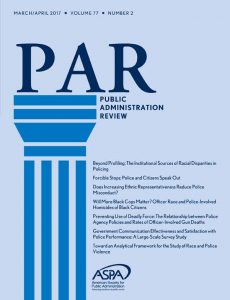The Law & Social Movements: Six Months after SOPA & PIPA
Six months ago today the U.S. Congress was in the midst of a debate over legislation that would fundamentally alter the relationship between the state, intellectual property holders, and the Internet. In opposition to the legislation, known as SOPA (House version) and PIPA (Senate version), thousands of web sites – including major sites such as Wikipedia and reddit.com – voluntarily blacked themselves out in protest. A closer examination of this incident and events that have transpired since provides insight into how legal change can have an impact on social change, generally, and social movement activity, specifically.
Currently, the law governing most matters of copyright on the Internet is the Digital Millennium Copyright Act (DMCA) of 1998. Although the DMCA is an enormous law, of particular importance in this matter is the “safe harbor” provision. Under the DMCA, internet service providers and website operators are not held liable for content on their site that infringes on copyrights, so long as they act in good faith to remove it when notified by the copyright holder. This means that YouTube, for example, is not required check each and every video uploaded to the site to make sure they do not violate a copyright. Instead, the owner of the video notifies YouTube, and YouTube takes the video down; in exchange for doing so, YouTube is not held responsible for hosting copyrighted material.
The Stop Internet Piracy Act (SOPA) and the Protect Intellectual Property Act (PIPA) sought to expand protection for right’s holders by doing away with the “safe harbor” provision. Under SOPA and PIPA, Internet service providers and website operates would be held responsible for the content posted by their users and would be obligated to proactively police user-generated content for instances of copyright infringement. Moreover, SOPA and PIPA would have allowed the U.S. Department of Justice to seek a court order forcing service providers to block access from the United States to any site – foreign or domestic – deemed to be violating the law.
To be clear, these are significant legal changes that would have 1) shifted the burden of enforcing copyright protections from the rights-holder to a third party, and 2) permitted the U.S. government to censor, block access to, or shut down web sites based on vague definitions of piracy.
Though SOPA and PIPA were ultimately defeated, the protests demonstrated the viability of online protest in aiding social movements. One key reason for success was the voluntary blackout of major internet sites, such as Wikipedia. When the blackout occurred on January 18th, visitors to participating sites were greeted with messages explaining that SOPA/PIPA would lead to the possible censorship of the internet and their favorite sites. These same messages urged visitors to take action by contacting their Senator or Representative in the House. While true that such techniques do rely on elites and corporations being friendly to the cause, it is a highly effective way of engaging directly with the public without using the media as an intermediary. Additionally, by blocking out their own sites, website operators were able to show their audiences what might happen if they fail to take action.
Much of this ties in to James M. Jasper’s suggestion that social movement theory should do more to focus on meanings and emotions. According to Jasper (2010), “the intellectual pendulum has swung away from the great structural and historical paradigms and back toward creativity and agency, culture and meaning, emotion and morality.” By using self-censorship and blackouts, site operators successfully tapped into the cultural importance of an open Internet to spur people to action. Rather than success being a function merely of resources or political opportunities, self-censorship created a clear and explicit link between Internet censorship as a social issue worthy of collective action and the everyday life experience of people browsing the web.
The SOPA and PIPA protests that took place just six months ago today are more than just an interesting case of a social movement. More broadly, they reflect how (proposed) changes in the law can have the potential to significantly alter social institutions. In turn, this will spur people to action. It is, however, very unlikely that we have seen the end of attempts to regulate the internet and strengthen the position of rights-holders. So what do you think is next? Will we see more SOPA-style protests? Will online collective action continue to be meaningful?
Further Reading:
Rolfe, Brett. “Building an Electronic Repertoire of Contention.” Social Movement Studies 4(1):65-74.
Copyrights and Internet Piracy (SOPA and PIPA Legislation) at The New York Times
Information on PIPA and SOPA at the Electronic Frontier Foundation



